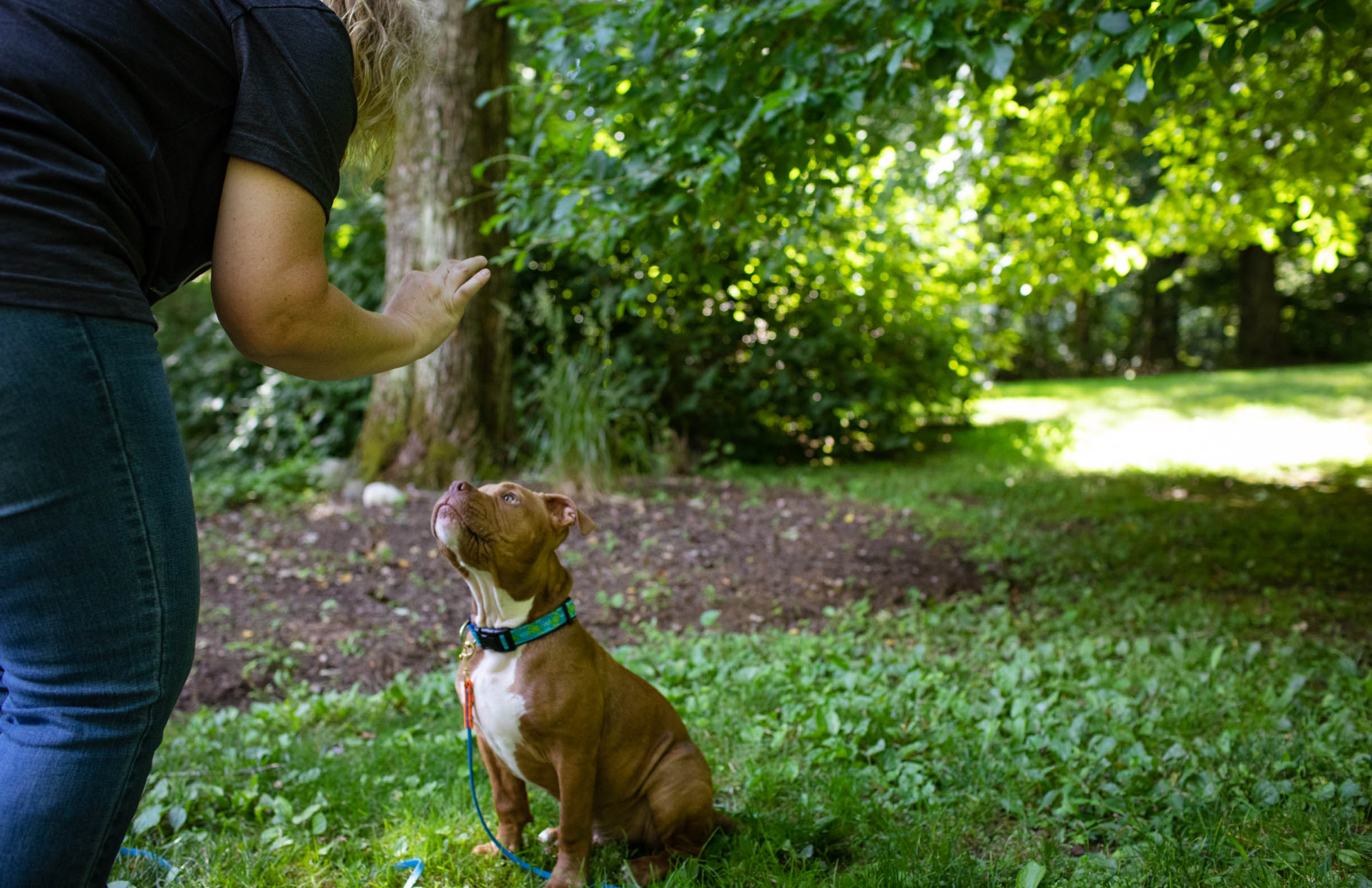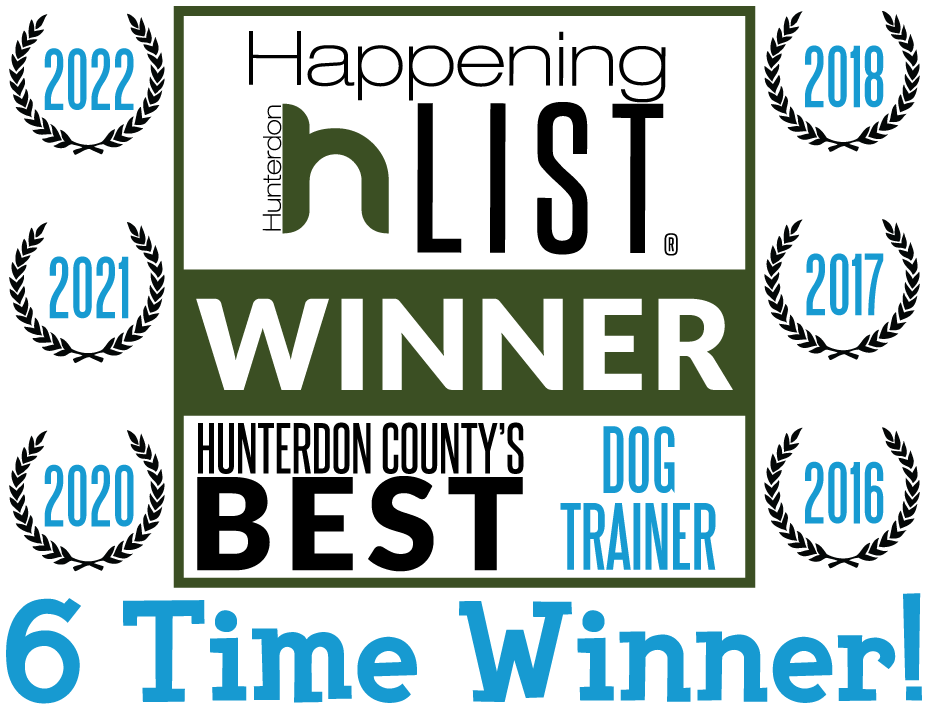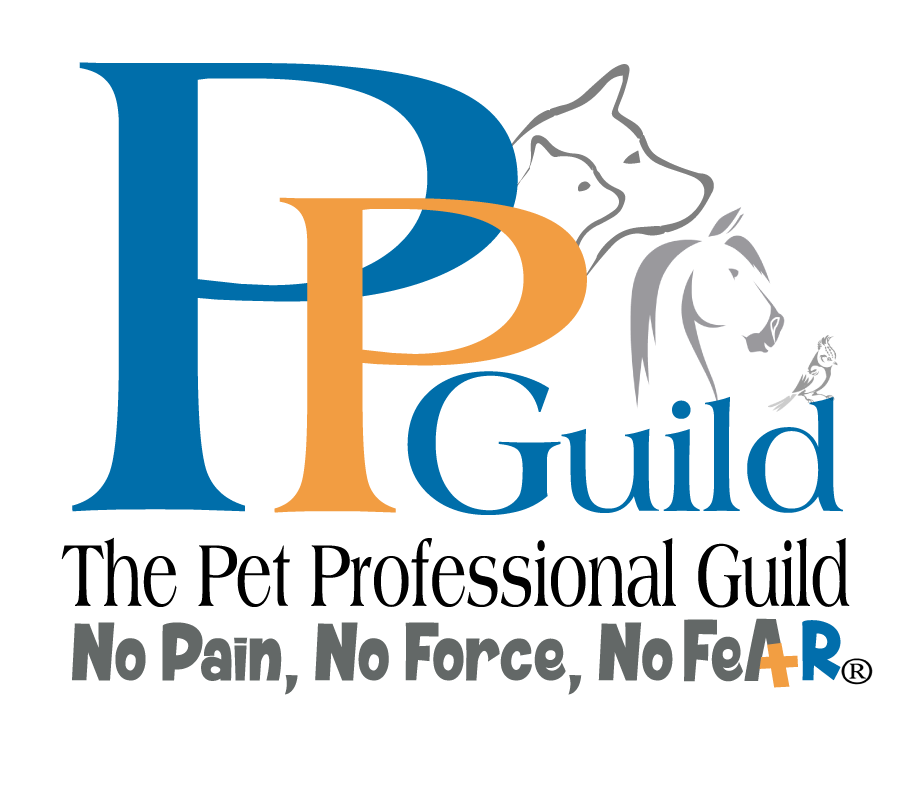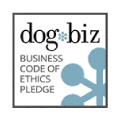At some point during a puppy parent’s training journey I am asked, “how long do we need to use training treats”? or “when can we stop using training treats”? My answer often causes someone to look at me like a deer in headlights or to have a look of surprise with a wide open mouth. Come along with me as I explain the role of treats in dog training.
The Power of Food as Motivators:
Food rewards are one of the most powerful and effective tools in dog training. Why? Putting it very simply… they work! Puppies and dogs are naturally drawn to food. It’s a primary reinforcer. Using food rewards as motivators can be the fastest way to teach your puppy the behaviors you want them to have.
The Convenience of Using Dog Training Treats: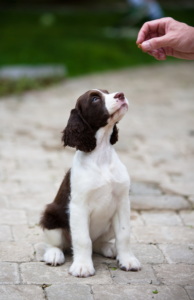
While play can be another form of reinforcement when training our puppies, there are scenarios when adding play isn’t convenient or efficient. Carrying some training treats with you is much easier and allows for quick, precise rewards.
It can be hard to take your puppy’s favorite toy to the park or farmers market. There are times you want to reinforce the good behavior quickly and repeatedly. That’s hard to do if you are throwing a ball for your puppy to catch or fetch. We simply can’t get in enough reinforcement because we have to wait for the puppy to bring the toy back to us and release it so we can use it again.
Food rewards provide clear, immediate feedback to your puppy, reinforcing the “thing” you want your puppy to do.
Why You Shouldn’t Fade Out Training Treats
A common misconception is that you should phase out using treats in dog training and stop using them, completely. However, this isn’t entirely accurate.
When your puppy is reliable in the behavior you want them to learn, it is natural to use less training treats. However, we don’t want to completely abandon them. A lack of positive reinforcement from you means your puppy is open to receiving reinforcement from the environment, potentially causing the behavior you worked so hard to teach, to erode.
Example of how behavior can erode:
Your puppy walks nicely by you and checks in, but no longer gets reinforced for this awesome behavior. Your puppy gets excited by someone, pulls towards them, and gets a lot of attention in the form of affection, fun baby talk, and some play.
You and your puppy continue having walks together, but your puppy isn’t reinforced by you for the desired behavior, but continues to get reinforced by the people they pull towards.
Now, your puppy checks in with you less and looks for more people to rush towards.
They people have become more reinforcing than you. Now you’re left frustrated because all they time you took to teach polite leash walking is fading away.
I have more tips if you feel like your puppy is being disobedient or stubborn.
Understanding Using Training Treats When Training Your Puppy: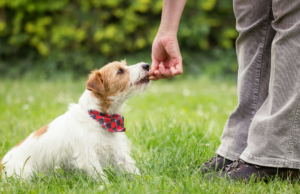
Reinforcement is essentially a paycheck for a job well done for your puppy. Would you continue going to work and continue a stellar work performance if you weren’t motivated or rewarded?
It’s important to understand that dog’s don’t do things just to please us. This is a myth. It’s a nice sentiment, but it is a myth. Dog’s do what works and what gets them they ‘good stuff’. Using training treats is your puppy’s paycheck- they motivate your puppy to perform the behaviors you want them to continue to be able to do.
But Aren’t Training Treats Just Bribing My Puppy?:
Rewarding your puppy is not the same as bribing them. Bribing implies showing your puppy the food rewards in order to get them to do they behaviors you want. Rewards, on the other hand, come AFTER your puppy has performed the desired behavior and are given as positive reinforcement for getting it right.
Maintaining Behaviors for Life:
Once your puppy is reliable in a behavior you want them to know, putting them on a random reinforcement schedule will create a stronger behavior. But how does this work? Think about a slot machine. People will sit in front of one and keep putting money in because they know at some point, they are going to get rewarded. They just don’t know when, but one of these times when they do the behavior (pull the arm) it will yield treats (money).
When your dog is randomly reinforced for behaviors you taught them, they are waiting for the slot machine (you) to pay out. The random, unpredictability, keeps them motivated.
A Final Word on Why You Shouldn’t Stop Using Training Treats: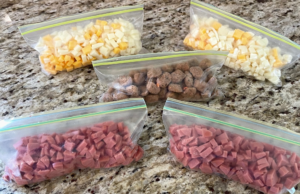
In Conclusion, using training treats as rewards in your puppy training is not just a phase. It’s a lifelong strategy to maintain solid behaviors. Just as you expect a paycheck for the work you do, our dogs should be rewarded a job well done… and to maintain all the hard work you put in to teaching those behaviors. Don’t be afraid to pay (reinforce) your dog. It’s a win for both of you!
Need help with your puppy journey? Yes, help guide me to teach my puppy good manners.

